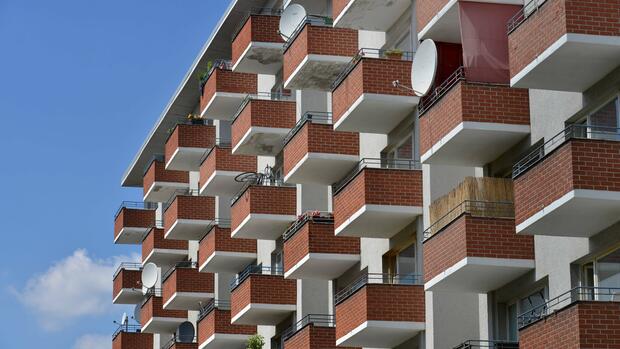Berlin The plans to replace the heating system continue to cause unrest. The Central Association of the German Housing Industry (GdW) and the German Tenants’ Association (DMB) accuse the federal government of the previously planned subsidy disadvantages larger landlords – and thus also people who live there for rent.
According to previous plans, only private owners and small landlords living in the building with up to six residential units should be subsidised. “This massively limits the circle of recipients,” says a position paper from the tenants’ association and housing industry, which was also sent to the Chancellery, Economics Minister Robert Habeck (Greens), Building Minister Klara Geywitz (SPD) and Finance Minister Christian Lindner (FDP) on Tuesday became.
Housing companies were left out, regardless of whether the company is a cooperative, a municipal, church or private company such as Vonovia.
The draft law for the reform of the Building Energy Act (GEG), which Economics Minister Habeck and Building Minister Geywitz pushed through the cabinet in April, stipulates that from January 2024 every newly installed heating system should be operated with 65 percent renewable energies. The Bundestag will discuss the draft for the first time at the end of May, and it is to be finally discussed in June.
Funding is also currently being discussed. A basic subsidy and various climate bonuses are under discussion, for example for owners who are not obliged to exchange their old heating but do so anyway.
Housing market in deep crisis
The housing market in Germany is in a deep crisis. As a result of the rapidly increasing construction costs and higher financing interest, more and more projects are being canceled or put on hold, the Munich Ifo Institute recently reported. New business is literally collapsing.
The Bundestag will first discuss the draft law to reform the Building Energy Act at the end of May, and it is to be finally discussed in June.
(Photo: dpa)
The GdW also reports on “overwhelming framework conditions” that are causing new construction and energy-related refurbishment to collapse. According to the companies organized in the GdW, around 32 percent of the planned new buildings and 21 percent of the planned modernization measures are not implemented. In order to finance a new building at the current costs, “it would require a net cold rent of 17.50 to 20 euros per square meter and more”.
In the midst of this crisis, the GEG reform would require “gigantic investment sums” from the housing companies, the paper goes on to say. Calculations based on data from the management consultancy “eco2nomy” have shown that around 61 billion euros would have to be invested in the housing companies organized in the GdW over the next 20 years just to meet the requirements of the GEG. That doesn’t seem feasible without funding. The allocation of the entire costs to the tenants is again unreasonable.
According to their own statements, the housing companies do not have the equity and liquidity to provide for significant new construction as well as renovations and heating exchanges, it warns.
>> Read here: Real estate industry raises the alarm – “The situation is worse than ever”
According to the DMB and GdW, living will become even more expensive without funding. As a result, “that income group in particular is left in the lurch whose landlords do not receive any climate bonuses and who receive little or no housing benefit and are dependent on affordable housing”.
EU recovery plans also costly
The situation is further exacerbated by the expectation of the amended EU Building Directive, or EPBD for short. According to the latest proposals by the EU Parliament, 45 percent of the German housing stock would have to be renovated by 2032 in addition to replacing the heating system.
Lukas Siebenkotten, President of the German Tenants’ Association, said on Tuesday with a view to the GEG: “It must now be clearly regulated that the entire rented building stock is funded.”
According to the latest proposals by the EU Parliament, 45 percent of the German housing stock would have to be renovated by 2032 in addition to replacing the heating system.
(Photo: dpa)
GdW President Axel Gedaschko called for the announced funding for private living space to be transferred “one to one” to housing companies, which in turn must benefit tenants “one to one”.
>> Read here: These rules apply to subsidies for new heaters from 2024
The federal government should not only limit the subsidy to owner-occupiers of living space, but the same rights must apply to everyone. “Everything else is social explosives, and the acceptance of climate protection will vanish into thin air,” said Gedaschko.
Despite high costs, the socially oriented housing companies organized in the GdW have so far been able to maintain a rent level that can be borne by the general public.
In the first half of 2022, rents for re-letting averaged EUR 7.09 per square meter. The GdW gives the amount for the first half of 2022 at 9.51 euros per square meter.
According to the GdW, tax depreciation options are not an equivalent solution because the housing companies lack the liquidity for the investments. This should be understood as an indication to the liberals who, according to information from the Handelsblatt, are considering such models. In addition, according to Gedaschko, there are 1,400 tax-exempt cooperatives among the GdW companies alone, which would not even theoretically benefit from this.
More: Digital dossier – How to replace the heating system
